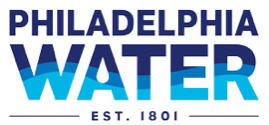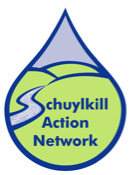Overview
The Schuylkill River Restoration Fund is offering matching grants of up to $4,000 per project to assist with transaction costs for permanent land protection projects (conservation easements, full fee acquisitions, donations) within the Schuylkill River watershed – the largest tributary to the tidal Delaware River and Bay. Grants can be awarded to qualified non-profit tax-exempt 501(c)(3) conservation organizations or units of government. The purpose of these grants is to incentivize and facilitate the protection of high priority lands for water quality and habitat protection in the Schuylkill River watershed.
Eligible Projects
- Projects must be within and/or including areas identified as high priority lands by the Schuylkill Action Network Watershed Land Protection Collaborative. High priority lands are those with scores of 8-10 on the priority lands composite map, which can be accesssed in map and/or data format at SAN Land Prioritization Strategy Final Maps Letter (schuylkillwaters.org)
- Projects protecting “friction areas” and/or larger areas of priority lands will be given priority over others. See priority lands website for information on “friction areas.” SAN Land Prioritization Strategy Final Maps Letter (schuylkillwaters.org)
- Reimbursable transaction expenses must be incurred between 1/1/24 and one year from the date of the signed grant agreement. Project expenses claimed as match must be incurred and paid for by December 31, 2024. Real estate transaction projects completed prior to 1/1/24 are not eligible for this funding round. “Completed” refers to the closing date of the land transaction. Projects settlements must occur within one year of the signed agreement to be eligible for funding. All grantees must provide a copy of a fully signed Purchase and Sale Agreement with the landowner with only due diligence contingencies remaining prior to the release of grant funds.
Eligible Expenses
Transaction costs eligible for reimbursement include (but may not be limited to): land surveys, attorney fees, land protection staff time, consultant fees, the conservation group’s appraisal costs, recording fees, title expenses, and stewardship costs.
Grant Award Process
Only one application may be submitted per project. Applications are due to SRG by April 17, 2024 which may be before or after transaction costs are incurred. Applications will be prioritized based primarily on the amount of friction and/or priority lands protected. However, other factors, including the date (or estimated date) of the transaction, the applicant’s history, the level of protection provided/proposed, the amount/type of match, and date, quality, and completeness of the application may also be used to prioritize if applications exceed available funds, with the goal of fulfilling the purpose of the program to the greatest degree possible with successful projects.
Reimbursement Process
Grant funds will be disbursed on a reimbursement basis by the Schuylkill River Greenways. All expenditures to be reimbursed must be documented before funds are released, in accordance with Schuylkill River Restoration Fund Grant program guidelines. Eligible transaction costs must be completed and all required invoice documentation – including the recorded easement, sale agreement, or deed – within one year of signed grant agreement. Completion of grant reporting and required paperwork can be completed beyond this date.
Match Guidance
All cash, supplies, and in-kind services counted as match must be from non-federal sources (including in-kind time and state funding) and cannot be used as match for other federal funds. Otherwise, match requirements are the same as for other Schuylkill River Restoration Fund grants.
Application
Under “Project Description” include the name of the entity to hold the land or easement and, for conservation easements, confirm that water resource values will be protected and indicate what (if any) model language will be used to do so. Under “Project Scope” include the latitude, longitude, and number of acres protected, and include an aerial or map showing the area to be protected (ideally, overlaid with SAN prioritization results.) In the budget, under “Grant Request” indicate whether grant funds will be used for land survey, appraisal, legal fees, staff time, consultant fees, title expenses, recording fees, stewardship, or other costs (describe).


